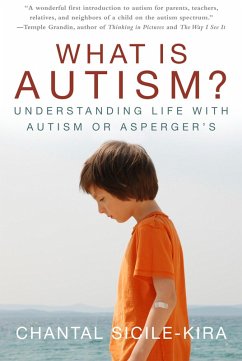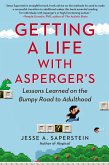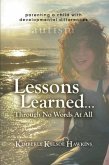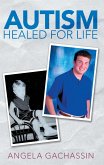International autism advocate and bestselling author Chantal Sicile-Kira provides this simple, concise explanation of one of the most prevalent disorders in America.
Each year, 1 in every 100 children in America are diagnosed with autism. Although autism has reached epidemic proportions, it is far from understood. In What Is Autism? Chantal Sicile-Kira provides a clear, instructive explanation of autism spectrum disorders and what life is like for those on the spectrum. If you know someone with autism and would benefit from a quick, straightforward explanation of the condition, this book is the perfect resource. What Is Autism? explores in a simple question-answer format topics such as:
Each year, 1 in every 100 children in America are diagnosed with autism. Although autism has reached epidemic proportions, it is far from understood. In What Is Autism? Chantal Sicile-Kira provides a clear, instructive explanation of autism spectrum disorders and what life is like for those on the spectrum. If you know someone with autism and would benefit from a quick, straightforward explanation of the condition, this book is the perfect resource. What Is Autism? explores in a simple question-answer format topics such as:
- What are the causes of autism? Can vaccines cause autism?
- Can autism be prevented?
- How can I recognize the symptoms?
- Why do children and teens with autism act the way they do?
- What are the emotional effects of autism on the family?
Dieser Download kann aus rechtlichen Gründen nur mit Rechnungsadresse in A, D ausgeliefert werden.









